
The Right of the People
Democracy and the Case for a New American Founding
No se pudo agregar al carrito
Solo puedes tener X títulos en el carrito para realizar el pago.
Add to Cart failed.
Por favor prueba de nuevo más tarde
Error al Agregar a Lista de Deseos.
Por favor prueba de nuevo más tarde
Error al eliminar de la lista de deseos.
Por favor prueba de nuevo más tarde
Error al añadir a tu biblioteca
Por favor intenta de nuevo
Error al seguir el podcast
Intenta nuevamente
Error al dejar de seguir el podcast
Intenta nuevamente
 Exclusivo para miembros Prime: ¿Nuevo en Audible? Obtén 2 audiolibros gratis con tu prueba.
Exclusivo para miembros Prime: ¿Nuevo en Audible? Obtén 2 audiolibros gratis con tu prueba.
Elige 1 audiolibro al mes de nuestra inigualable colección.
Acceso ilimitado a nuestro catálogo de más de 150,000 audiolibros y podcasts.
Accede a ofertas y descuentos exclusivos.
Premium Plus se renueva automáticamente por $14.95 al mes después de 30 días. Cancela en cualquier momento.
Compra ahora por $19.80
-
Narrado por:
-
Osita Nwanevu
-
De:
-
Osita Nwanevu
“The first thing I’ve read that provides a rigorous vision of how to refound this nation if we manage to survive the current threats to these core values.”—Chris Hayes, #1 New York Times bestselling author of The Sirens’ Call
Frustrated with our political dysfunction, wearied by the thinness of contemporary political discourse, and troubled by the rise of anti-democratic attitudes across the political spectrum, journalist Osita Nwanevu has spent the Trump era examining the very meaning of democracy in search of answers to questions many have asked in the wake of the 2024 election: Are our institutions fundamentally broken? How can a country so divided govern itself? Does democracy even work as well as we believe?
The Right of the People offers us challenging answers: while democracy remains vital, American democracy is an illusion we must make real by transforming not only our political institutions but the American economy. In a text that spans democratic theory, the American Founding, our aging political system, and the dizzying inequalities of our new Gilded Age, Nwanevu makes a visionary case for a political and economic agenda to fulfill the promise of American democracy and revive faith in the American project.
“Nearly two hundred fifty years ago, the men who founded America made a fundamental break not just from their old country but from the past—casting off an order that had subjugated them with worn and weak ideas for the promise of true self-governance and greater prosperity in a new republic,” Nwanevu writes. “With exactly their sense of purpose and even higher, more righteous ambitions for America than they themselves had, we should do the same now—work as hard as we can in the decades ahead to ‘institute new Government’ for the benefit of all and not just the few.”
Los oyentes también disfrutaron:

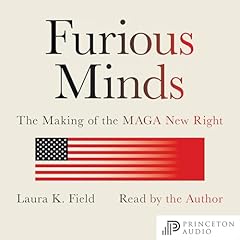
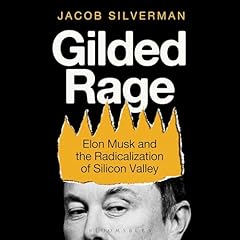


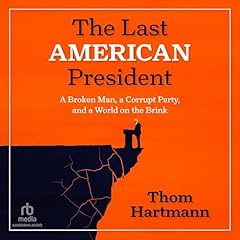





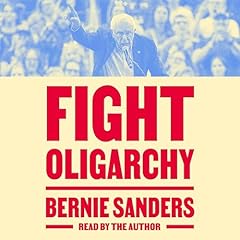




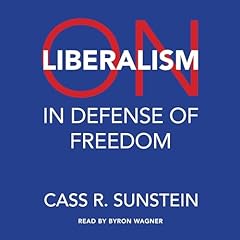



Reseñas de la Crítica
“The first thing I’ve read that provides a rigorous vision of how to refound this nation if we manage to survive the current threats to this these core values.”—Chris Hayes
“The Right of the People is a thoughtful look at the challenges facing our political system—and a timely reminder of what American democracy can still be. It offers a grounded, practical agenda to try and point us toward a better path.”—Congressman Ro Khanna
“New Republic political writer Nwanevu offers remedies for an ailing American democracy. . . . His writing is vibrant, even optimistic, animated by a clear belief that self-governance is the best kind of governance, and damn the torpedoes. A resounding, persuasive call for a truly inclusive government of the people.”—Kirkus Reviews, starred review
“Democracy’s allies have to rethink it both economically and politically, Osita Nwanevu shows, to keep conservatives who are junking democracy from winning, and to keep liberals with little more than hashtags about democracy from oversimplifying the task. With his trademark style, Nwanevu takes readers on a journey, beginning with the Greeks and dwelling on the Founding, to a contemporary America that desperately needs a new democracy to replace its incomplete one.”—Samuel Moyn, Yale University
“Nwanevu has a truly remarkable—almost unique—ability to distill a broad range of academic scholarship into a fully accessible argument of his own about the deficiencies of the present American constitutional system and the drastic need for fundamental reform and, indeed, a 'New American Founding.' This superb book deserves the widest possible readership—and, more to the point, ensuing discussion and political action generated by his incisive analysis.”—Sanford Levinson, author of Our Undemocratic Constitution
“The Right of the People is a thoughtful look at the challenges facing our political system—and a timely reminder of what American democracy can still be. It offers a grounded, practical agenda to try and point us toward a better path.”—Congressman Ro Khanna
“New Republic political writer Nwanevu offers remedies for an ailing American democracy. . . . His writing is vibrant, even optimistic, animated by a clear belief that self-governance is the best kind of governance, and damn the torpedoes. A resounding, persuasive call for a truly inclusive government of the people.”—Kirkus Reviews, starred review
“Democracy’s allies have to rethink it both economically and politically, Osita Nwanevu shows, to keep conservatives who are junking democracy from winning, and to keep liberals with little more than hashtags about democracy from oversimplifying the task. With his trademark style, Nwanevu takes readers on a journey, beginning with the Greeks and dwelling on the Founding, to a contemporary America that desperately needs a new democracy to replace its incomplete one.”—Samuel Moyn, Yale University
“Nwanevu has a truly remarkable—almost unique—ability to distill a broad range of academic scholarship into a fully accessible argument of his own about the deficiencies of the present American constitutional system and the drastic need for fundamental reform and, indeed, a 'New American Founding.' This superb book deserves the widest possible readership—and, more to the point, ensuing discussion and political action generated by his incisive analysis.”—Sanford Levinson, author of Our Undemocratic Constitution
Las personas que vieron esto también vieron:






The result of the founders' efforts may find resonance in the Robert Anton Wilson quote: "The function of law and theology are the same: to keep the poor from taking back by violence what the rich have stolen by cunning." With the US Constitution deliberately designed against popular governance, the author explores some practical approaches for correcting the current stack of cards. In addition to getting money out of politics, including neutering the Citizens United decision, Nwanevu suggests specific reforms to build practical democratic agency for people both in law and within the economy—these include the following essential changes in the relationship between workers and employers:
1. Reviving unions and labor power—the arguments for this are obvious.
2. Reforming corporate governance—the cooperative governance model allows workers to affect more than just pay and working conditions, extending to selection of board members and business decisions. This approach is successfully used in several European countries.
3. Promoting worker ownership—something that goes in line with the "ownership economy," a concept related to increasing the proportion of Americans who own assets, to give people a personal stake in society. This arrangement, such as the Employee Stock Ownership Plan (ESOP) and other models of worker stock ownership and control, have proven helpful not only for improvements in workplace quality of life but also company profits as well—these examples debunk the canard that helping workers hurts a company's economic health in a zero sum assumption.
One of the often neglected points in the public discussion of election fairness is the nexus Nwanevu presents between electoral freedom (the legal right to vote) and the actual ability to exercise that freedom without sacrificing essential economic well being (such as one's own employment)—or suffering other constraints (such as lack of child care) that introduce real world obstacles for some to go vote and enjoy other civic privileges, that exist in name only for far too many citizens. It's uncanny how the issues surrounding the US Constitution described by the author in this book rhyme so closely with the greed and oppression railed against by the prophets in the Hebrew scriptures from millennia ago—Jesus the Nazarene also drove those points home in several of his parables, as well as the famous incident in which he physically thrashed the money changers and flipped over their tables. There indeed is a place for Jubilee debt relief in our own time (a concept that alarmed the wealthy founders about the Articles of Confederation). This clear eyed presentation by Nwanevu firmly establishes that true economic freedom is a prerequisite for true democracy—let's see that all the essential components of democracy are established and maintained.
Examining the true motivations for political power
Se ha producido un error. Vuelve a intentarlo dentro de unos minutos.
Interesting ideas
Se ha producido un error. Vuelve a intentarlo dentro de unos minutos.
Unrealistic
Se ha producido un error. Vuelve a intentarlo dentro de unos minutos.


